Search Results
Showing results 1 to 20 of 23
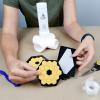
Exploring the Universe: Pack a Space Telescope
Source Institutions
Space telescopes can offer us better, clearer views of the universe (and of our own planet) than Earth-based telescopes can, but getting these large, delicate pieces of equipment into orbit is tricky.

No Pressure
Source Institutions
In this activity, learners observe what would happen to their bodies if they went to outer space without a space suit.
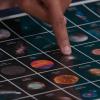
Exploring the Universe: Space Guess Quest
Source Institutions
Space Guess Quest is a fun game that encourages participants to identify the many types of objects in space, from human-made spacecraft to nebulas, galaxies, stars, and worlds.
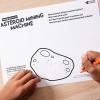
Exploring the Solar System: Asteroid Mining
Source Institutions
In this activity, learners will imagine the challenges and opportunities of asteroid mining.
Mission Insignia
Source Institutions
In this science/art activity, learners create an insignia or emblem for a planet exploration mission.
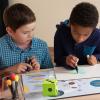
Exploring the Solar System: Mission to Space Board Game
Source Institutions
In this tabletop board game, players will represent a team of scientists and engineers sending a spacecraft on a mission to space.
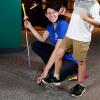
Exploring the Solar System: Stomp Rockets
Source Institutions
In "Exploring the Solar System: Stomp Rockets," participants learn about how some rockets carry science tools—not scientists—into space, and how a special kind of rocket called "sounding rockets" can

Exploring the Universe: Objects in Motion
Source Institutions
"Exploring the Universe: Objects in Motion" encourages participants to explore the complex but predictable ways objects in the universe interact with each other.

Black Holes: No Escape
Source Institutions
This fun and simple hands-on astronomy activity lets learners experiment with marbles and weights to discover some basics about gravity and black holes.
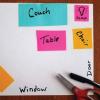
Make A Map for A Treasure Hunt
Source Institutions
In this activity, learners will explore how maps can provide information about a place and help us find our way from one location to another.
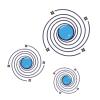
Expanding Balloon Universe
Source Institutions
In this activity, learners will discover how our universe is continuously expanding.
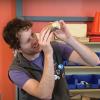
Constellation Tubes
Source Institutions
In this activity, learners will create their very own constellation.
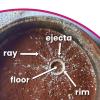
Make An Impact
Source Institutions
In this hands-on activity, learners simulate the crashing and smashing of a meteor impact using household cooking supplies.
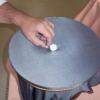
Gravity and Falling
Source Institutions
This fun and simple hands-on astronomy activity lets learners experiment with a bucket, stretchy fabric, marbles, and weights to discover some basics about gravity.
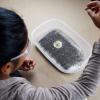
Exploring the Solar System: Craters
Source Institutions
"Exploring the Solar System: Craters" is an active, hands-on activity that demonstrates how craters form, and what they can teach us about the history and composition of planets and moons.
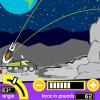
Planetary Rescue Squad
Source Institutions
This is an online Flash game where learners can experiment with ballistics and how to compensate for the varying levels of gravity found on the planets of our Solar System.

Exploring the Universe: Nebula Spin Art
Source Institutions
In this activity, participants will learn about how gigantic clouds of gas and dust in space, called nebulas, are formed. They'll create their own colorful model nebula using paint and a spinner.
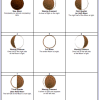
Oreo Phases
Source Institutions
In this activity, learners recreate the lunar phases using the frosting from Oreo® cookies and place the phases in order. Round cream cheese crackers can also be used if cookies are not an option.
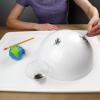
Exploring the Solar System: Magnetic Fields
Source Institutions
The "Exploring the Solar System: Magnetic Fields" activity shows participants how scientists can use tools to study the invisible magnetic fields of Earth, the Sun, and other objects in the universe.

Exploring the Universe: Star Formation
Source Institutions
In this activity, participants will learn how stars form from the dust and gas that exists in space clumping together.
